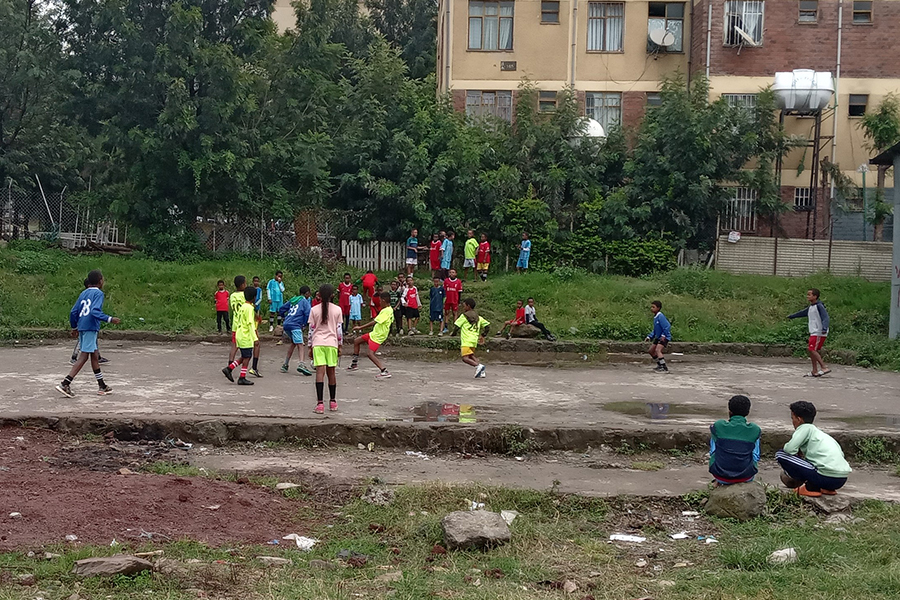
Summer camp is bustling in a condominium housing project around the Gofa area as children take over a soccer field on a cloudy afternoon. Amid the proliferation of electronic gadgets and social media over the past decade, it has become rare to witness children playing outdoors. Despite the benefits of access to information, the rising use of technology is resulting in higher instances of depression, aggressive behaviour, obesity and lower attention spans. The impacts have become more pronounced in the post-pandemic era as children struggled to recover from a year tucked away at home. Research indicates several benefits of sports for children, ranging from increased social skills to reduced anxiety and even better academic performance.
[ssba-buttons]